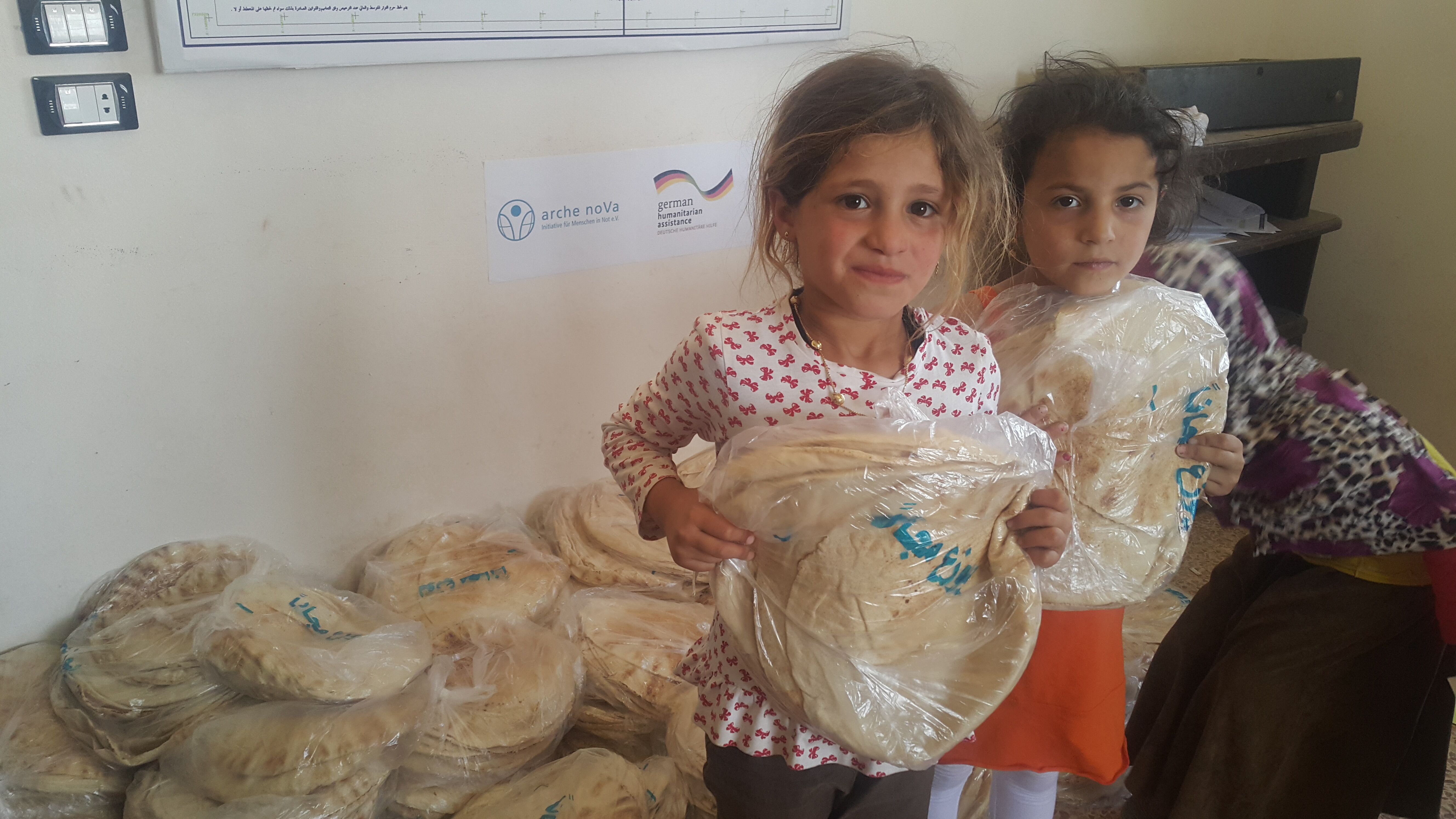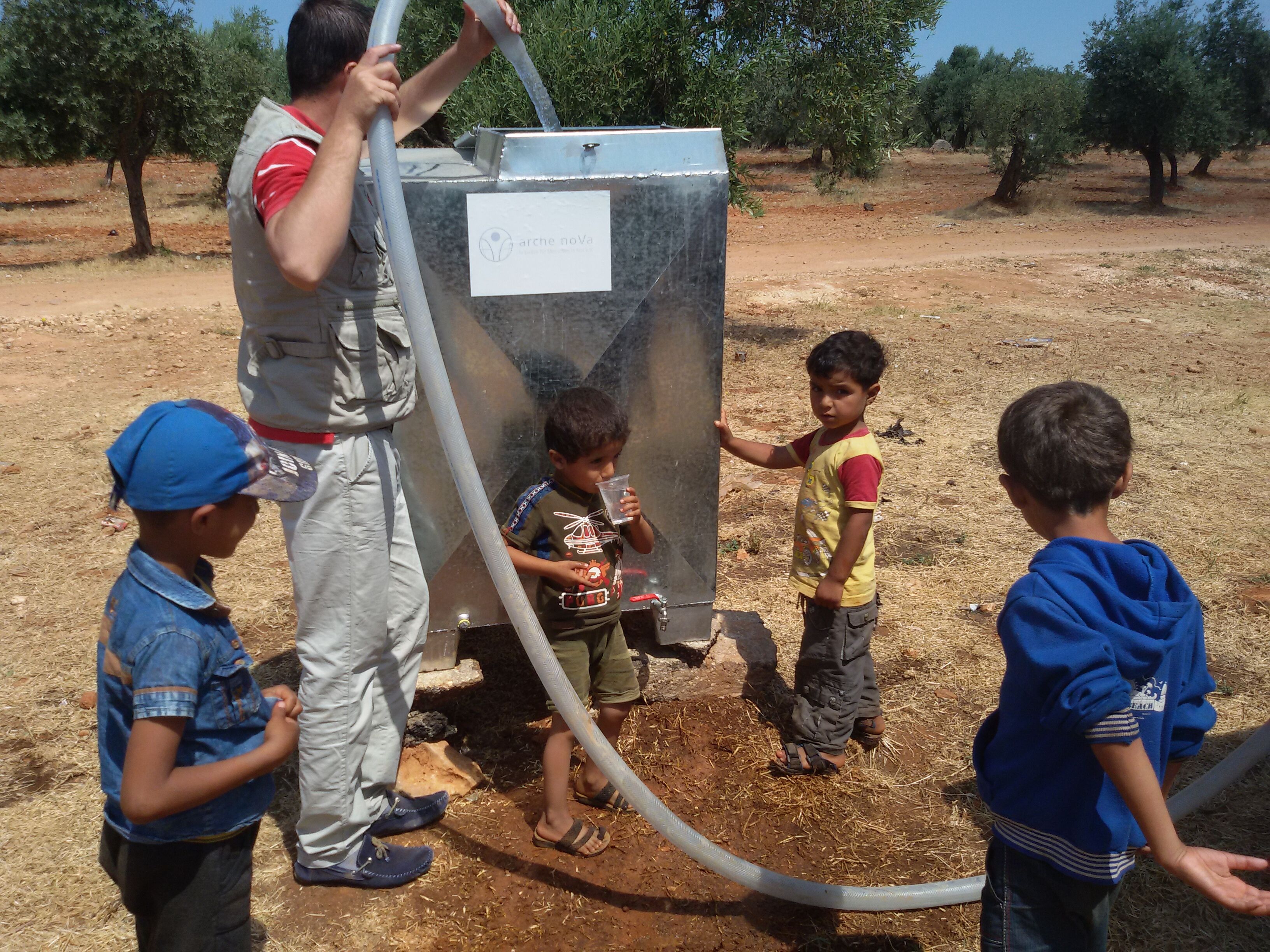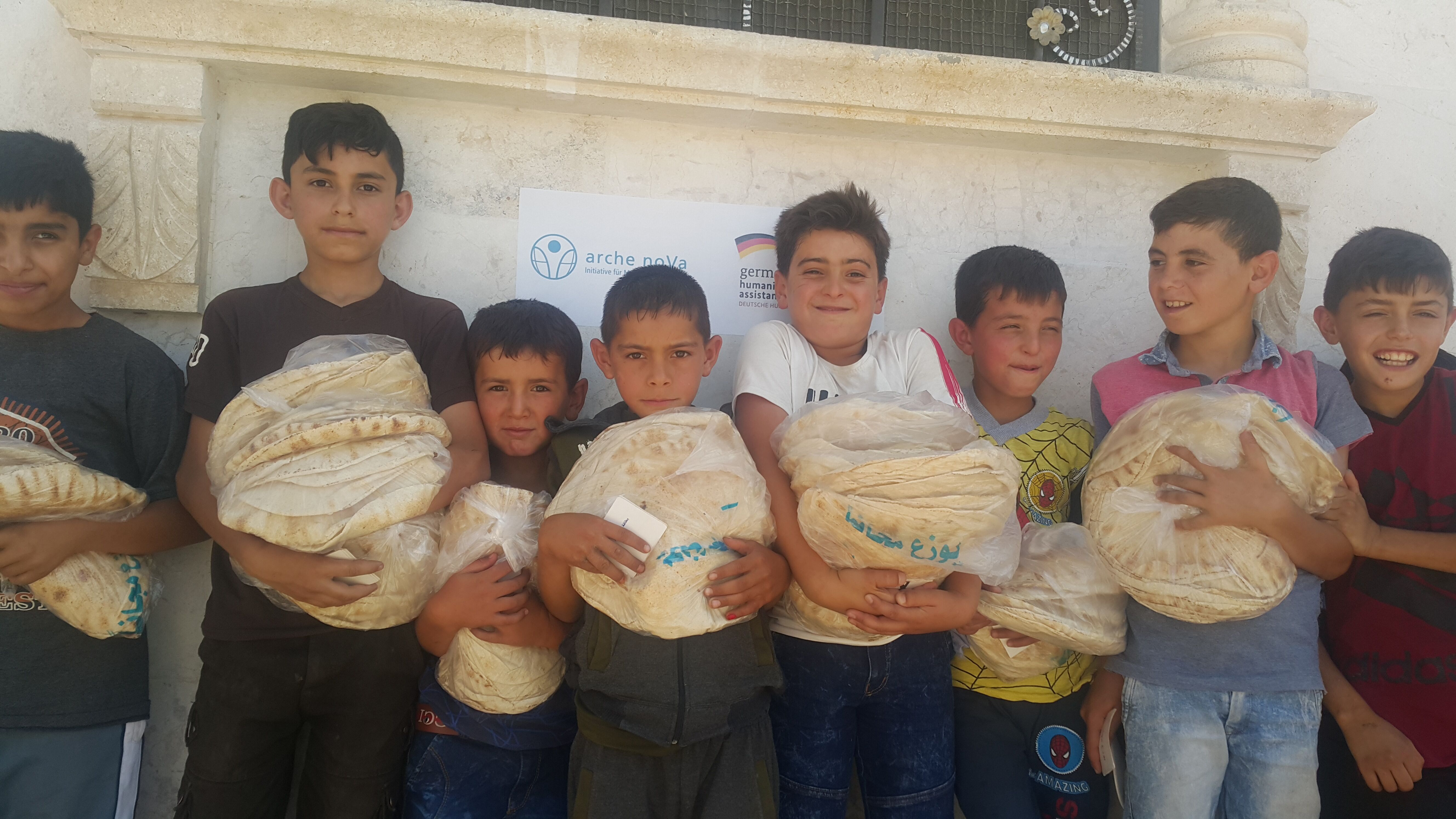"We see so much need, we often don't even know where to help first," reports Jyana from the local arche noVa team in Idlib. arche noVa is one of the few humanitarian organisations still active in the region. With 21 Syrians, all IDPs themselves, we ensure that more than 3,000 bread bags and 225,000 litres of water are distributed every day. Once a month, needy families receive a food package and a hygiene kit. In addition, toilets are built, garbage is disposed and septic tanks are pumped out. Emergency aid in its simplest form. But sometimes the helpers manage to put a smile on the lips of those affected. "Recently an old lady thanked me for building the latrine house - now she can finally sit in the shade," says Mohammad of our team in Idlib, where it is currently over 40 degrees during the day.
Originally, the relief operation in the region was designed for 103,000 people. However, due to new bomb attacks in the south of Idlib, about 30 percent more people are currently being cared for - and even that is far too little.
"It's a drop in the ocean, but our team in Idlib is incredibly committed and doing what it can," says Karin Uckrow. Our Middle East advisor in Dresden maintains close contact with the local team of helpers. Via Skype, Jyana reports that recently, during a distribution campaign in a village, something exploded just a hundred meters away. "I was terribly frightened and wanted to drive off immediately," she says. But the people in the village had reassured her that she shouldn't have to worry that nothing had happened to anyone, so she could continue with the food distribution - that's the most important thing for them now. And for Jyana as well. The former English teacher from Aleppo knows what it feels like to be bombed out. She herself - like the arche noVa office - has moved several times in the past three years and never knows exactly how long she can stay with her family in the place where she is.
Her colleague Mohammad, the Syrian team's WASH expert, has just moved to the north of Idlib after his family's home in the south of the region was destroyed by heavy bombing about two weeks ago. "We know exactly what the internally displaced people need most - because we are all in the same situation," says the 32-year-old mechanical engineer. With the difference that as employees of arche noVa they have a job and can thus provide for themselves. The majority of the refugees have lost everything years ago and are dependent on help. The same goes for many locals in Idlib, who are now once again feeling the extreme consequences of the war.
The province on the border with Turkey is regarded as the last retreat of the regime opponents, about three million people live here, about half of them IDPs from all parts of Syria. The ceasefire, which actually began in September last year, was suspended in April. Since then, Assad's troops have massively bombed the Idlib region and have not even balked at residential areas, schools and hospitals. "When we say that it is safe, we mean that bombs do not fall every day', our colleagues from Syria tell us. And Diab, the security officer in the arche noVa team, adds that compared to the south of the region, the north of Idlib is comparatively peaceful - which also means that more and more people are seeking shelter in the already overcrowded area. According to UN statistics, more than 80,000 people came to the border region in June alone. "It is a nightmare, the people are totally desperate. Most of them have been fleeing for years, now they are more and more cornered and know neither where to go nor how to help themselves", complains Karin Uckrow, our Middle East advisor. She is hoping for additional funding and donations to help at least alleviate the worst suffering.
Please support our help in the region with your donation.















